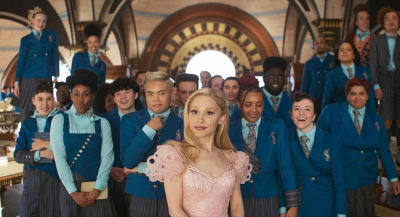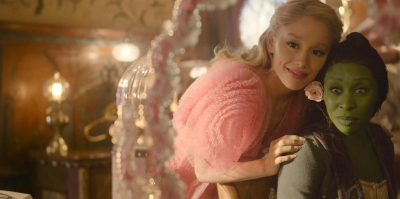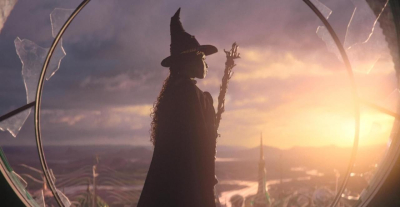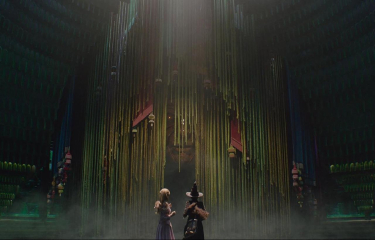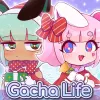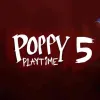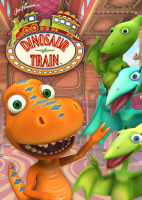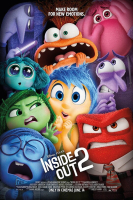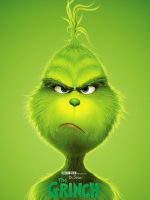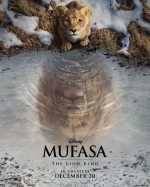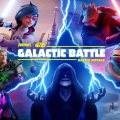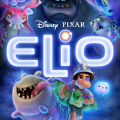Wicked review
Wicked
The world of theatre and film is often intertwined, each medium drawing inspiration from the other, creating a rich tapestry of storytelling. A notable instance of this is the musical "Wicked," which has enchanted audiences worldwide. This theatrical adaptation, inspired by Gregory Maguire's book, provides a new viewpoint on the conventional tale of "The Wizard of Oz," exploring the intricate dynamics between Elphaba, the Wicked Witch of the West, and Glinda, the Good Witch. This article explores the myriad fascinating aspects of the "Wicked" movie adaptation and the broader cultural impact it has had.
The Transition from Stage to Screen
The journey of "Wicked" began on Broadway, where it quickly gained legendary status. The transition from stage to screen is complex, requiring careful reimagining to retain the musical's essence while adapting to the demands of film. This challenge lies in balancing the spectacular visuals and storytelling that cinema can offer, alongside the powerful songs and performances that defined the stage version.
The Legacy of the Source Material
"Wicked" is largely inspired by Gregory Maguire's 1995 novel, "Wicked: The Life and Times of the Wicked Witch of the West." This book reinterprets the tale of the Wicked Witch, painting her in a sympathetic light and exploring themes of friendship, prejudice, and the nature of evil. The novel's rich narrative provided fertile ground upon which the musical was built. Furthermore, the choice to adapt such a layered and nuanced story intrigued filmmakers, with the potential for deep character exploration now at the forefront.
The Powerhouse Creative Team
One of the most significant driving forces behind "Wicked" is composer and lyricist Stephen Schwartz. His talent for creating unforgettable tunes and touching lyrics has left a permanent mark on the musical, giving it a distinct identity. The partnership between Schwartz and book writer Winnie Holzman has created a story that appeals to people of every age group. Their creative synergy will be vital in capturing the magic of "Wicked" for the silver screen.
The Casting Conundrum
In transitioning from stage to film, casting is paramount. The characters of Elphaba and Glinda demand actors who can embody their complexities while also carrying the vocal weight of the musical. Some names often floated in discussions about potential casting include Broadway stars who have already made their mark in these roles. Nevertheless, the film must also introduce fresh talent capable of bringing a new interpretation to these iconic characters.
The Visual Aesthetic
Cinema allows for spectacular visuals and immersive worlds, a crucial element that can enhance the storytelling of "Wicked." From the grand expanse of the Emerald City to the intimate settings of Shiz University, the film's artistic direction must bring to life the vibrant landscapes that have captured imaginations for years. Additionally, the costumes must reflect the diverse personalities of the characters, blending whimsy and fantasy with social commentary.
Exploring Themes of Friendship and Betrayal
At its core, "Wicked" is centered around the intricate relationship between Elphaba and Glinda. Their friendship, filled with admiration, jealousy, and eventual estrangement, serves as a vehicle to explore broader themes. The film adaptation has an opportunity to delve deeper into their bond, showcasing how circumstances and society's perceptions can alter personal relationships. Their journey reflects an evolving narrative of loyalty, sacrifice, and ultimately, understanding.
Musical Numbers that Define the Experience
No discussion of "Wicked" is complete without acknowledging its iconic musical numbers. Songs like "Defying Gravity" and "For Good" resonate with audiences, delivering powerful messages about self-acceptance and the impact individuals have on one another. The film's adaptation will involve careful consideration to capture these moments with the same emotional weight, while also taking advantage of cinematic techniques to enhance the performance.
The Role of Imagery in Storytelling
"Wicked" utilizes rich imagery to communicate themes and emotions effectively. The film adaptation will have the ability to explore these visuals in ways the stage cannot. Imagery such as the swirling clouds during "Defying Gravity" can create a more profound sense of flight and freedom. The filmmakers must strike a balance between stunning visuals and maintaining a narrative focus that aligns with character development.
Audience Engagement and Cultural Impact
The Broadway production of "Wicked" has had a considerable cultural impact, inspiring discussions around feminism, societal norms, and moral ambiguity. The movie adaptation offers the same opportunity to engage audiences in meaningful conversations. By exploring these themes, the film could become a significant cultural touchstone, resonating with contemporary issues regarding individuality and acceptance.
Anticipating the Soundtrack
Beyond the visual elements, the soundtrack of "Wicked" is a defining aspect that must receive careful attention in the film adaptation. The arrangement of the songs, along with any additional compositions, needs to evoke the same emotional responses as those heard in the theatre. Engaging orchestration and a talented vocal cast will be essential in delivering the musical's hallmark emotional punches.
The Importance of World-Building
One of the strengths of "Wicked" is its detailed world-building within the land of Oz. The film adaptation has a rich opportunity to expand on the lore surrounding this universe, introducing backstories and histories that add depth. Doing so would create a more immersive experience for the audience, allowing them to understand the intricacies of the power dynamics in Oz that affect the characters directly.
Exploring Character Arcs
Character development is essential for any film. In "Wicked," the growth of Elphaba and Glinda from students navigating their identities to empowered women fighting against societal norms mirrors the struggles many face in real life. The movie adaptation has the potential to explore these arcs more intimately, possibly through flashbacks or deeper dives into their internal conflicts.
Creating a Connection with Diverse Audiences
"Wicked" brilliantly weaves a narrative that can connect with diverse audiences, exploring relatable themes such as belonging and identity. The film adaptation must consider this aspect to remain relevant and evocative for modern viewers. By portraying multifaceted characters and presenting their dilemmas authentically, the movie can build a wider emotional connection.
Marketing the Adaptation
The marketing strategy for "Wicked" will play a critical role in its success. As a well-established brand in theatre, the film must attract old fans and entice newcomers. Considerations will need to be made regarding promotional materials, trailers, and collaborations with influencers to create buzz and anticipation. The objective is to make the film an accessible and exciting venture for all audiences.
Innovations in Cinematic Techniques
In adapting "Wicked" for the big screen, filmmakers have the opportunity to employ innovative techniques that enhance the storytelling experience. Elements such as CGI, elaborate set designs, and exceptional special effects can take viewers on a mesmerizing journey through Oz without losing the emotional weight underpinning the narrative. This creative approach encourages reimagining the interaction between characters and their magical environment.
The Impact of Social Commentary in Wicked
At its heart, "Wicked" examines societal issues such as prejudice, discrimination, and the definitions of good and evil. As the film strives to maintain the essence of the original story, it must also adapt these themes to reflect modern societal challenges. By doing so, the film can create significant conversations among audiences, appealing to a broader viewership interested in social justice and the fight against systemic oppression.
Pros
- Unique Perspective: Wicked offers a fresh take on the classic Wizard of Oz story by exploring the backstory of the Wicked Witch and the dynamics between her and Glinda
- Powerful Music: The musical score, composed by Stephen Schwartz, features memorable songs that resonate emotionally with audiences
- Strong Themes: The production delves into significant themes such as friendship, identity, and societal judgment, encouraging viewers to consider moral complexities
- Rich Character Development: Elphaba and Glinda evolve throughout the story, showcasing relatable struggles with acceptance and self-discovery
- Visually Stunning: The theatrical and prospective film adaptations employ vibrant visuals, with elaborate sets and costumes that enhance the overall experience
- Cultural Impact: Wicked has generated important conversations around feminism, individuality, and social norms, establishing a powerful cultural footprint
Cons
- Complex Narrative: The layered storyline may confuse some audience members not familiar with the original Wizard of Oz tale
- Lengthy Duration: The stage adaptation can be lengthy, which may be challenging for younger audiences or those with shorter attention spans
- Character Saturation: Some might feel overwhelmed by the varying characters and their backstories, leading to possible disengagement from the main plot
